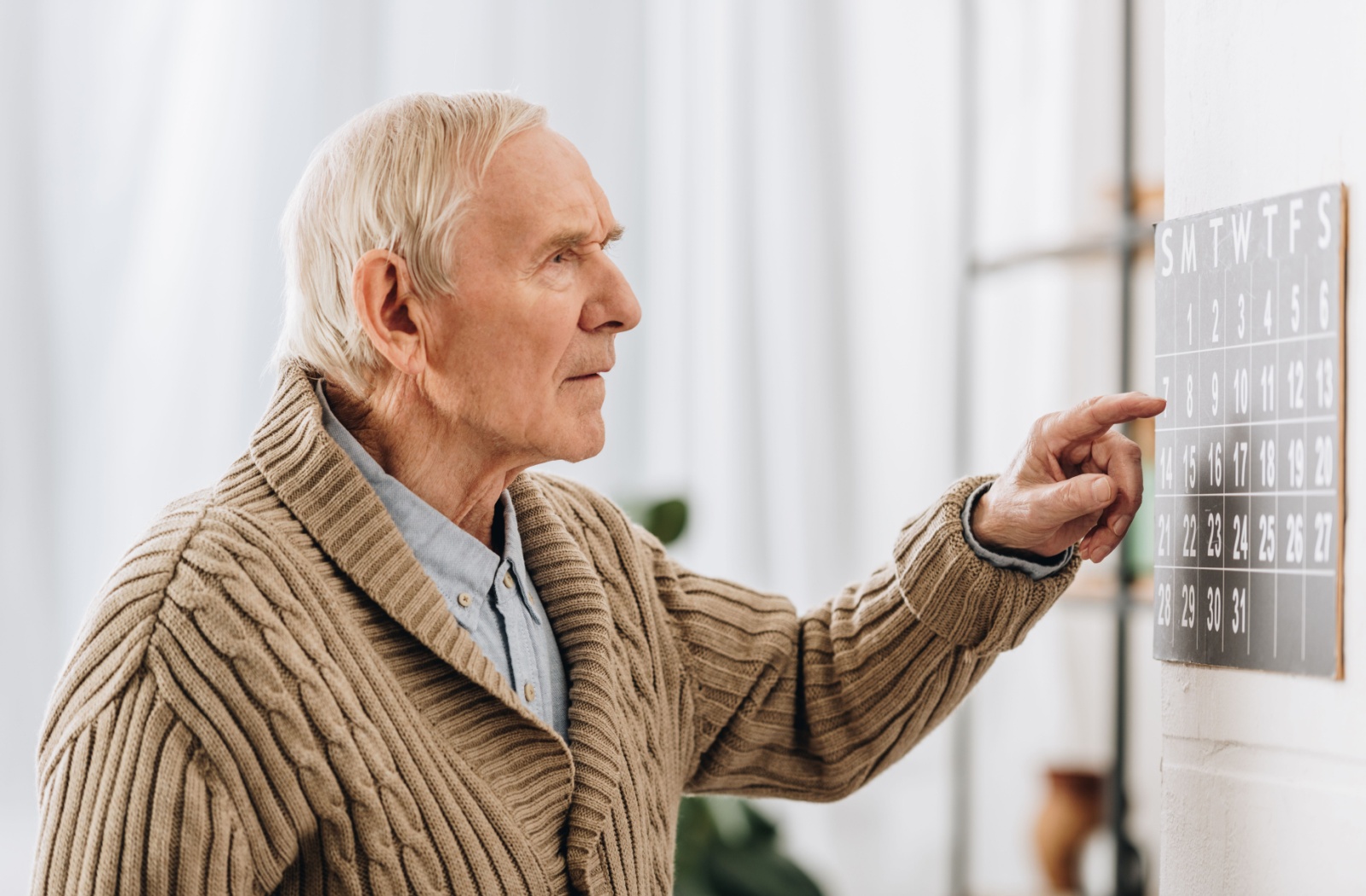Occasional forgetfulness is not an uncommon thing that happens as we age. But other times, a disease like dementia or its related conditions can also wreak havoc on our cognitive abilities. Regardless of the cause or intensity, there are often ways to assist a loved one experiencing memory loss.
A few ways that you can help someone with memory loss include:
- Be flexible and patient
- Simplify remembering
- Limit questions
- Establish a routine
When memory loss surpasses what we can generally expect with age-related cognitive decline, it’s important to consider long-term options. Many senior communities offer specialized care for those with dementia, which is called memory care.
Why Does Memory Loss Happen?
Memory loss doesn’t occur without a reason—even if that reason is age. But there are many reasons that one might experience memory loss.
- Injury: The importance of wearing a helmet is stressed because head injuries are a significant cause of memory loss. If damage is severe, memory loss might be the least of the worries.
- Smoking: Smoking decreases the oxygen supply to your brain. This oxygen deprivation over time can lead to memory issues.
- Medications: Many drugs list memory loss as a potential side effect. Consult your physician about alternatives if you are on a drug causing this effect.
- Sleep deprivation: Adequate and quality sleep are essential as that’s how our bodies function. Achieving this in today’s fast-paced world can be challenging but is crucial.
- Emotional distress: Mental health conditions like depression or excessive stress can also lead to memory issues. Some medications to treat these conditions can cause memory problems. So, you should consult with your healthcare provider to discuss alternative medications in these situations.
Dementia
Dementia affects memory by disrupting the brain’s ability to process, store, and retrieve information. It often starts with short-term memory loss, making recalling recent events or conversations difficult, while long-term memories may remain intact in the early stages.
As dementia progresses, it can impair the ability to form new memories, retrieve older ones, and recognize familiar people or places. This occurs due to damage to brain regions like the hippocampus, which is crucial for memory, and the overall decline in neural connections.
What Type of Memory Loss Is Your Loved One Experiencing?
Predicting memory loss is not straightforward. When someone is diagnosed with Alzheimer’s, we understand that the memory problems will deteriorate. But if someone is depressed, they might suddenly struggle to remember even simple things, which could go unnoticed.
This is why understanding the various causes of memory loss and ways to assist someone battling it is crucial. It’s essential that you and your loved one seek the expert advice of a healthcare professional if memory loss begins affecting their daily lives.
Helping a Loved One with Memory Loss
There isn’t a one-size-fits-all answer to supporting a loved one who is experiencing memory loss that affects their daily lives because of the various potential causes. But the following tips and strategies give you a good place to start.
Be Flexible & Patient
Flexibility and patience are essential regardless of why your loved one may forget things. Many older adults experiencing memory loss are aware of this. So, your patience and flexibility in interactions with them can help them feel loved and valued as a person.

Simplify Remembering
If your loved one finds it hard to remember certain things, facilitate the memory process. Reiterate new concepts often or break down new tasks into smaller, manageable steps. These small “wins” can help keep them encouraged and positive.
Limit Questions
Steer the conversation without inserting questions. Instead of asking, “Do you recognize John?” say, “Your nephew John has come to visit you.” This does 2 things: your loved one is gently reminded who John is, and they are saved from the potential embarrassment of not recognizing their nephew.
Establish a Routine
A structured routine aids someone dealing with memory loss by helping them recall what comes next. Visual cues like a daily planner are often helpful.
Don’t Go It Alone
Coping with memory loss can be challenging, even for trained healthcare professionals. So, don’t try to handle it by yourself. Seek help from friends and family. Some services and organizations are available for assistance if family isn’t an option.
Memory care may be an excellent option for a long-term solution. But if your family needs a temporary care option, respite care is worth exploring.
Remember, people with memory loss are often aware of it, especially in the early, milder stages. This awareness can cause stress and guilt since they can’t control it. We must prioritize treating a person struggling with memory loss with respect and love, ensuring they don’t feel like a burden.
Still Unsure About How to Support Your Loved Ones?
Dealing with a loved one’s memory loss can be challenging and disheartening. If you’re finding it difficult, you’re not alone. Reach out to us at The Enclave of Newell Creek, and one of our caring associates can answer your questions. And if you’re ready to explore long or short-term care options with your loved one, we’d love to show you the community.









